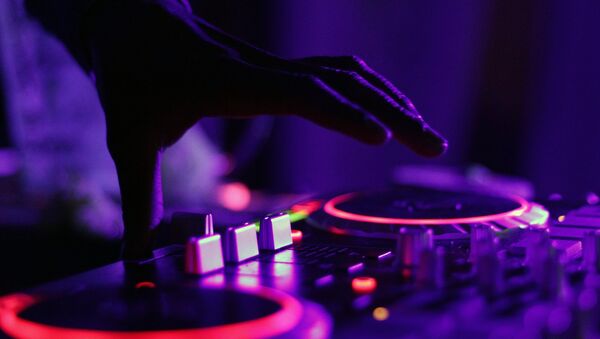Sputnik: What could be the reason for people shunning clubs in favor of illegal raves?
Beate Peter: It's definitely entry prices and drink prices. So it's becoming too expensive and even has a higher burden with the increase in tuition fees and students make up almost half the population going to nightclubs, and I they have to think quite hard about whether to pay admission, and the high drinks prices inside the nightclub.
That might deter them from going into the nightclub- pushing them into hybrids, but also making them look for alternatives, and another reason why people might look for alternative venues is because Mid-Level Interviewed people who go to night-clubs and found out that nightclub goers say that most nightclubs are too similar, and I think that has to do with the fact that within the nightclub economy, nightclubs play an important role, but I think it also means that almost all of them are highly commercial. In their commercial attitude I think they're very similar. So, people might look for alternative ways in engaging in dance and music, you know, partying with a sound-system but where maybe the venue is not as glitzy or glamorous, or the sound-system is not as spectacular or the lights are not as professional might appeal more to certain kinds of people.
Sputnik: What role has gentrification played in raising the prices in pubs and clubs?
Beate Peter: It has a lot to do with Gentrification, as we look into city centers, where nightclubs are, but also an increased density in flats that are being built around this. There is the problem of two different interests. On the one hand, we have people who want to live there, in flats that are really expensive. On the other hand we have this night time economy taking place. Noise complaints have led to increased pressure on venues to do something about this, up until recently. Now with the Agent of Change Planning Bill coming in, I think this might change, because its put on the developer to do something about noise reduction. I do think it has an impact on how nightclubs are run. it can be traced back to why people might decide not to go to nightclubs, instead looking for venues or locations where it is not as important how loud or how quiet the music is. Also where licensing is not such an issue, but also where there is no 'ending time' at a particular event and it's kind of open ended. In commercial nightclubs you know pretty much what you get, when you buy your ticket, whereas at an illegal rave, it used to be an embrace of the unknown, which made people enjoy the illegal raves.
Sputnik: Do you think people have more fun when something is free or even illegal? Sort of like the forbidden fruit mentality?
Beate Peter: I think that is an element to it, it's not just that it is illegal, but I think it is part of any youth culture, or subculture, to test the limits of what's possible if one is happy to engage in illegal activities. The feeling of going to an illegal rave, and meeting others who are there forms a strong bond among those people. If we think of the idea of a sub-culture, being in opposition to a mainstream culture, then, this is very much an expression being part of a subculture, or an underground movement. I do think that young people in particular, are always happy to explore those limits between legal, illegal, mainstream culture, and subcultures- all of which take place at illegal raves.
Sputnik: Do you think that closing clubs helps to curb drug use?
Beate Peter: Not at all. I think the opposite might be the case that people start using drugs more domestically, and that would be much harder to control. Drug use, is not necessarily just a problem for night clubs, or music venues. Closing these venues because of 'drug use' is just an excuse. I’ll use the example of Berghain, (a nightclub in Berlin): When Berghain applied for a lower tax bracket in Germany, arguing that they provide 'high culture'. When the hearing took place, one of the arguments brought forward was that people take drugs in the venue. It was dismissed as being a similar experience to somebody listening to classical music. So the focus was immediately shifted away from drug use, because I think we do live in a society where legal as well as illegal drugs are abused and misused to such an extent that we need to find other ways to cope with it. But I don't necessarily think that the closure of nightclubs will help us with that problem.
The views expressed in this article are solely those of the speaker and do not necessarily reflect the official position of Sputnik.



